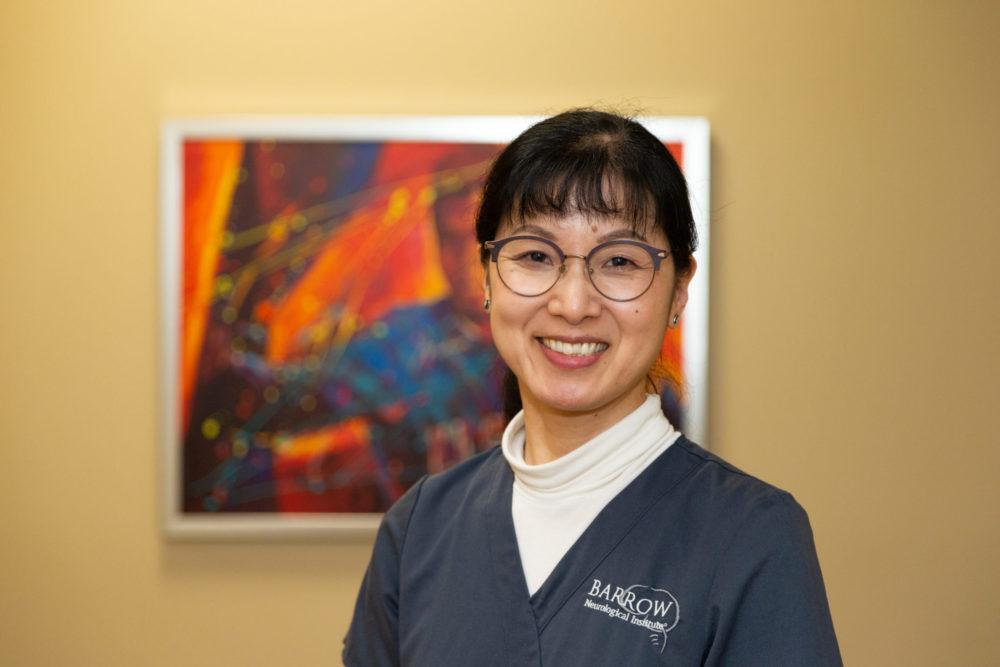
Meet Noriko Tateuchi: DBS Nurse in the Muhammad Ali Parkinson Center
Tateuchi is a deep brain stimulation (DBS) nurse in the Muhammad Ali Parkinson Center at Barrow Neurological Institute.
She assists with various day-to-day clinic tasks, DBS education, and the troubleshooting and programming of neurostimulators. These surgically implanted devices serve as pacemakers for the brain, helping to regulate abnormal electrical signals associated with Parkinson’s disease and other movement disorders. Tateuchi helps fine-tune the amount of stimulation delivered by the device, which varies from patient to patient.
“Before I came to this clinic, I knew nothing about Parkinson’s,” she said. “I didn’t see Parkinson’s much in the hospital. I had to learn from almost zero.”
Tateuchi joined Barrow 18 years ago as a bedside nurse in the stroke unit. She knew she wanted to be a nurse when she was in high school and began her nursing career in the neurological intensive care unit at Tokyo Women’s Medical University Hospital in Japan. She decided to move to the United States and chose Phoenix for its warm weather.
After undergoing the English as a Second Language program at Arizona State University, she enrolled in the nursing school. When it came time to choose a hospital for her last clinical rotation, she remembered hearing about Barrow while living in Japan and requested the neuro-ICU. She loved it and applied for a job in the stroke unit at Barrow after graduation.
Seven years later, in 2009, neurologist Dr. Guillermo Moguel-Cobos asked Tateuchi to join the Parkinson Center. He taught her how to program neurostimulators.
“Sometimes I miss bedside nursing and acute care,” Tateuchi said. “But here I have more of a long-term relationship with the patients.”
Tateuchi enjoys being able to improve the quality of life of movement disorder patients and feels honored to earn their trust.
“Outpatient and inpatient nursing are so different, so we kind of tend to get separated, but we’re all nurses,” she said. “I always tell my friends, once you’re a nurse, you’re going to be a nurse forever. You have so many opportunities anywhere.”
The most challenging part of being a nurse, she said, is when she is unable to do more for a patient due to barriers like insurance issues or the lack of treatments for stopping Parkinson’s progression.
“Sometimes I have to say, ‘I’m sorry I couldn’t help,’” she said. “That’s the hardest part.”
On the days when the job gets stressful, she looks forward to stepping on the ice hockey rink.
“I leave all the stress out there so I can come back to work refreshed,” she said.

